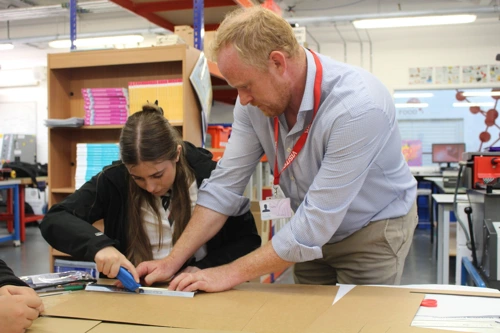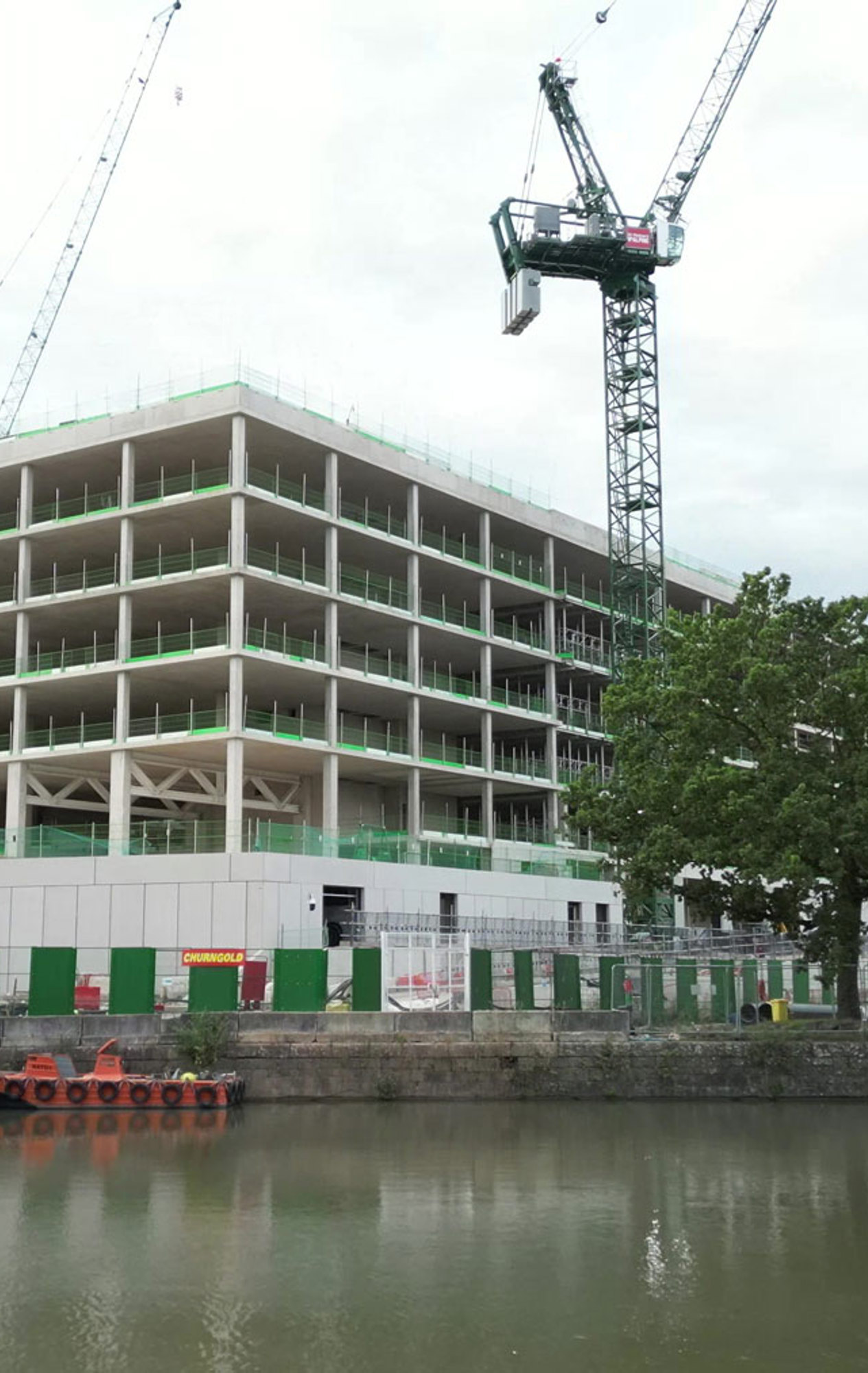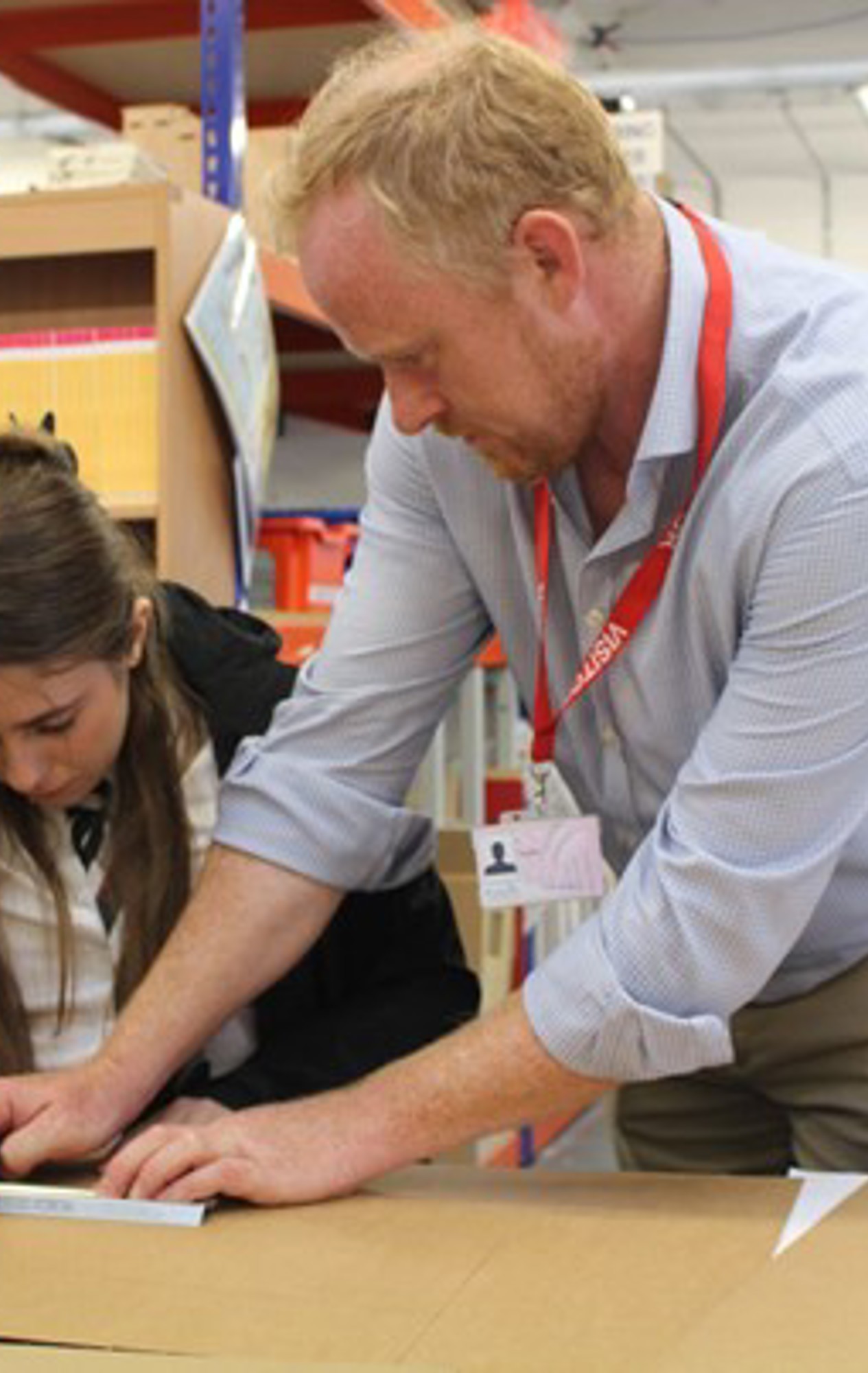
TQEC connects to Bristol heat network
20 Nov 2025Energy from the project's computer servers will be used to provide heating and hot water for the campus, as well as homes and businesses in the local area
Together with Buro Happold and the University of Bristol, we are inspiring the engineers of the future at Temple Quarter Enterprise Campus
This is also true for the communities that live in and around new developments. That’s why we're working in partnership with engineering consultants, Buro Happold, and the University of Bristol to welcome a range of students and interested local groups on site to see the new flagship Temple Quarter Enterprise Campus take shape in the heart of Bristol.
 We are working with local secondary school IKB Academy over three years as part of the innovative Design, Engineer, Construct! (DEC) education programme.
We are working with local secondary school IKB Academy over three years as part of the innovative Design, Engineer, Construct! (DEC) education programme.
Thanks to a partnership with the University of Bristol, the team has been able to invite students from IKB Academy to visit the TQEC site (see right) for hands-on experience, and also enjoy sessions delivered by University of Bristol faculty members.
Peter Munn, TQEC Project Director at Sir Robert McAlpine, said: “As an industry, we don’t get to the potential workforce at an early enough stage. The DEC programme means we can get students interested in the sector at Year 10 and help them understand the wide range of careers that the built environment sector supports.”
Apprentices, interns and new graduates from Buro Happold’s Bath office are also invited to TQEC as part of a regular site visit programme, as are non-technical departments including HR and document control. Aiming to educate, upskill and inspire, these visits allow colleagues across the practice to experience different parts of the design and construction process, and gain practical understanding of work flow across disciplines on site.
Jane Pengelly, Associate Structural Engineer at Buro Happold, said: “I feel strongly that if we can bring people to site we should. We’ve really appreciated the openness and willingness of Sir Robert McAlpine to open the site, and the opportunity this has given us to work together to give a variety of groups a greater understanding of the construction process, and our built environment.”
Major projects like TQEC are built on collaboration, and it takes real appreciation and understanding across teams to achieve successful outcomes.
To support a culture that enabled open communication to thrive on site, we embarked on a three-month Engineer Exchange programme with Buro Happold. This saw two building services engineers swap roles to ‘walk a day’ in each other’s shoes – on site and in the design studio.
Joss Lumby, Graduate Building Services Manager at Sir Robert McAlpine, said: “The Engineer Exchange experience at TQEC has been really useful, because it’s given me the opportunity to spend time at a design consultancy. Working within Buro Happold has helped me gain an appreciation for all the elements of the design that feed into what I’m delivering on site day-to-day.”

We also worked together to host site visits for interested local groups, including the Bristol ICE early careers network, local built environment charity Design West, and students from the University of Bath and the University of Bristol. This ongoing outreach, alongside the educational initiatives run at TQEC, demonstrate how education and engagement can be built into projects at every stage.
As the University of Bristol has stood as a beacon of learning since 1876, it’s fitting that TQEC became a site for learning, engagement and social endeavour from the moment the first foundation was laid. When TQEC opens in September 2026, it will extend this reach right into the heart of the city, transforming a once-derelict site into a home for 4,600 students, 650 staff and around 300 enterprise partners.
Professor Judith Squires, Deputy Vice-Chancellor and Provost at the University of Bristol, said: “The Temple Quarter Enterprise Campus is our major new development for inclusive education, interdisciplinary research and responsible innovation. In this new space, we will be forging more opportunities to make a difference, co-producing vital research to benefit society, providing students with valuable skills and networks to succeed, connecting with more communities and partners to support inclusive growth in our region. It will be transformative for the University and for Bristol, creating an inspiring place for collaboration and discovery.”
The £500 million TQEC development also sets the standard for the wider 135-hectare Bristol Temple Quarter development. As the UK’s largest regeneration project, Bristol Temple Quarter aims to deliver 22,000 new jobs and 10,000 new homes, alongside new public realm, and a £1.6 billion annual boost to the regional economy.
Energy from the project's computer servers will be used to provide heating and hot water for the campus, as well as homes and businesses in the local area
Early collaboration in the design stage and engagement with supply chain enable Temple Quarter Enterprise Campus to achieve a 25% reduction in embodied carbon.
Our Temple Quarter Enterprise Campus (TQEC) project runs the first Design Engineer Construct (DEC) Programme in Bristol to educate local 13-18+ students, in partnership with the University of Bristol.
Severfield, steelworks contractor on Agratas' project, has adopted a local school to deliver an award-winning industry learning programme
Phase 3 delivered state-of-the-art operating theatres, modernising surgical facilities to support high-quality, modern care
Administration Apprentice, Maisie Woods, a resident of Bridgwater, is amongst the ten apprentices employed by Sir Robert McAlpine currently working at Agratas




